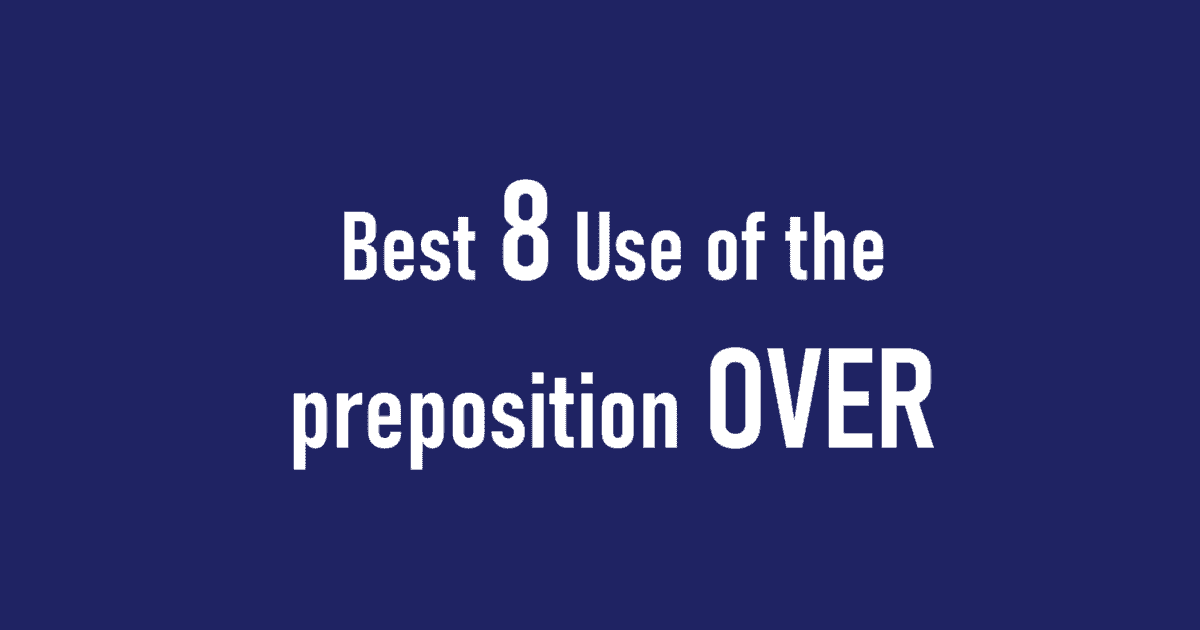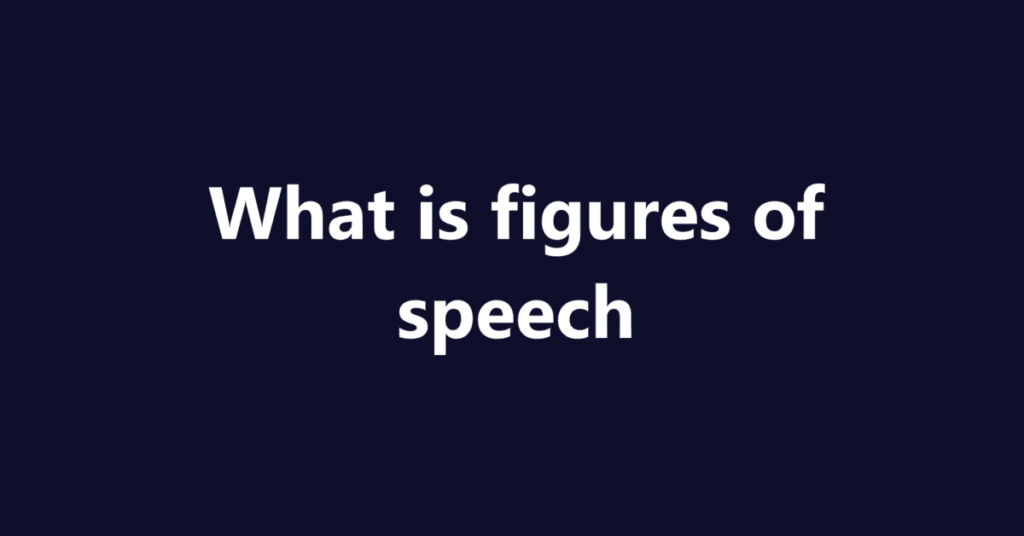Use of the preposition over. The preposition “over” is a small word with a surprisingly large number of uses. Often taken for granted, mastering its nuances can significantly improve your writing and comprehension. “Over” can indicate position, movement, time, quantity, and a whole host of other relationships, making it a true workhorse of the English language.
This comprehensive guide will delve deep into the various ways “over” is used, providing examples and explanations to help you understand and utilize this versatile preposition with confidence. We’ll explore its different meanings, common idiomatic expressions, and potential pitfalls to avoid.
Use of the preposition over
1. Indicating Position and Location:
One of the most fundamental uses of “over” is to describe a position or location that is above, across, or covering something else. This often implies a sense of physical placement, but can also be more abstract.
- Directly Above: In this case, “over” indicates that something is located directly above another object.
- Example: The lamp hangs over the table. (The lamp is positioned directly above the table.)
- Example: The clouds drifted over the mountain peak. (The clouds were moving directly above the peak.)
- Across and Covering: “Over” can also describe something extending across and covering an area or object.
- Example: She put a blanket over the sleeping child. (The blanket covers the child.)
- Example: The city was shrouded over with fog. (The fog covered the city.)
- On the Other Side Of (an obstacle or boundary): “Over” can imply movement or position on the opposite side of a barrier.
- Example: The cat jumped over the fence. (The cat moved from one side of the fence to the other.)
- Example: They live over the river. (They live on the opposite bank of the river.)
- Figurative “Over” (Superiority or Control): This usage extends the idea of being above to imply a position of authority, control, or superiority.
- Example: The manager has authority over the employees. (The manager is in a position of control.)
- Example: The company holds a monopoly over the industry. (The company has dominant control.)
2. Indicating Movement:
Beyond static location, “over” frequently describes movement in a specific direction. The core idea is movement that goes above and beyond a certain point or obstacle.
- Movement Across: This is a common usage, showing movement from one side to the other.
- Example: He walked over to the window. (He moved across the room to reach the window.)
- Example: The plane flew over the mountains. (The plane moved across the mountain range.)
- Movement Past: “Over” can suggest movement past a specific location or object.
- Example: The car sped over the bridge. (The car traveled past and beyond the bridge.)
- Example: The news spread over the internet. (The news traveled past and beyond specific points on the internet, becoming widely disseminated.)
- Movement With the Implication of Repetition or Thoroughness: “Over” can imply a movement that is repeated or done meticulously.
- Example: Read the document over carefully. (Read the document again, paying close attention.)
- Example: He went over the plans several times. (He reviewed the plans repeatedly.)
3. Indicating Time and Duration:
“Over” is a useful preposition when discussing periods of time. It suggests a timeframe during which something occurs.
- During a Period Of Time: This is perhaps the most common temporal usage of “over.”
- Example: We talked over lunch. (The conversation happened during the lunchtime period.)
- Example: The incident occurred over the weekend. (The incident took place during the weekend period.)
- Example: She stayed there over the holidays. (She remained in that location throughout the holiday period.)
- Extending Throughout a Period: Similar to the previous point, but with more emphasis on the duration.
- Example: The rain lasted over three hours. (The rain continued for a period of more than three hours.)
- Example: The project stretched over several months. (The project’s timeline extended throughout many months.)
4. Indicating Quantity and Extent:
“Over” is often used to indicate amounts that are greater than a specified limit or threshold.
- More Than: This is a frequent usage, highlighting that a quantity exceeds a certain number or value.
- Example: The temperature was over 30 degrees Celsius. (The temperature was higher than 30 degrees Celsius.)
- Example: The price is over our budget. (The price exceeds the available budget.)
- Example: There were over a hundred people at the event. (More than a hundred people attended the event.)
- Excess or Surplus: In some contexts, “over” can emphasize the idea of having more than is needed or desirable.
- Example: He has money to burn, over and above his expenses. (He has a surplus of money after paying for his expenses.)
5. Indicating Means or Instrumentality:
“Over” can describe how something is communicated or accomplished.
- Via or Through: This usage indicates that something happens through a particular channel or medium.
- Example: We heard the news over the radio. (We received the news through the radio broadcast.)
- Example: She contacted me over email. (She communicated with me using email.)
- Example: They negotiated over the phone. (The negotiations took place using the telephone.)
6. Indicating Subject Matter or Topic:
“Over” can also introduce the subject of a discussion, dispute, or disagreement.
- Concerning or About: This is a common way to use “over” to denote the topic being discussed.
- Example: They argued over money. (The argument was about money.)
- Example: We had a disagreement over the best course of action. (The disagreement was concerning the optimal strategy.)
- Example: There has been much debate over the new law. (The debate is focused on the new law.)
7. Common Idiomatic Expressions with “Over”:
“Over” features in numerous idiomatic expressions, where its meaning is not always directly deducible from its literal interpretations. Understanding these idioms is crucial for comprehending nuanced English.
- Over and Over: Repeatedly. Example: She practiced the song over and over until she perfected it.
- All Over: Throughout or everywhere. Example: The symptoms were all over his body.
- Over the Moon: Extremely happy. Example: She was over the moon when she got the job.
- Over One’s Head: Too difficult to understand. Example: The technical details were over my head.
- Over the Top: Exaggerated or excessive. Example: His reaction was a bit over the top.
- Start Over: Begin again. Example: Let’s just start over and try a different approach.
- Think Over: Consider carefully. Example: I need to think over your proposal before making a decision.
- Look Over: Examine or inspect quickly. Example: Can you look over this report and give me your feedback?
- Get Over: Recover from (an illness, a disappointment, etc.). Example: It took him a long time to get over the breakup.
- Pass Over: To ignore or disregard someone or something, often for a promotion or opportunity. Example: She was passed over for the promotion despite her experience.
8. Common Mistakes to Avoid:
While “over” is versatile, it’s important to avoid some common errors:
- Redundant Use: Avoid using “over” when it’s unnecessary and adds nothing to the sentence. For example, instead of “He repeated the instructions over again,” simply say “He repeated the instructions.”
- Confusion with “Above”: While both “over” and “above” indicate a position higher than something else, “above” usually implies a greater distance and often a lack of direct contact. “Over” often suggests proximity or covering. Think: “The picture hangs above the fireplace” (general higher position) versus “The shelf hangs over the fireplace” (closer proximity, potentially jutting out).
- Using “Over” When “During” is More Appropriate: While “over” can indicate time, “during” is often more precise when referring to a specific event or period. For example, “The power outage occurred during the storm” is generally preferable to “The power outage occurred over the storm.”
- Incorrect Preposition Combinations: Be mindful of fixed expressions that don’t use “over.” For instance, you might agree on a plan, but not agree over a plan.
Conclusion:
As this guide demonstrates, “over” is a powerful and adaptable preposition with a wide range of applications. By understanding its various meanings and nuances, you can significantly enhance your understanding of English and use the language more effectively and precisely. Remember to practice using “over” in different contexts and to be mindful of the common mistakes to avoid. With careful attention, you’ll master the art of using “over” and unlock its full potential in your writing and communication.
Read Also,
- Use of the preposition above
- Use of the preposition about
- What is Religion
- News in Hindi
- Human vs AI
- Very Important Word Lists
>>> Sir Sahil

